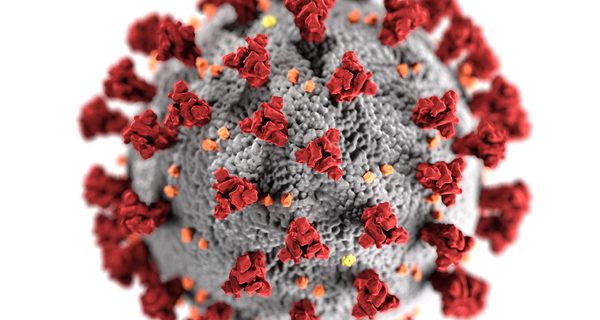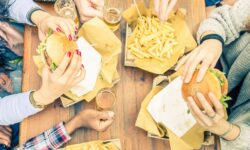By James Kinneen
Hometown Weekly Reporter
Last week, the number of COVID cases in Massachusetts exploded to around 3,000 a day. Unfortunately, I was one of them. But while my experience with COVID-19 was far from among the most harrowing, interesting or even notable ones in the state, I do think it provided me with some insights that may keep others from making the same mistakes I did, and I believe I can supply readers with some helpful advice as someone who went through the testing, illness, quarantine and recovery periods.
The first thing you should know is that I live in a crowded house. I live with my mom, dad, sister and her daughter, while a housing issue led to another sister, her husband and their kids having to move in with us for a little bit of time this month, as well. I know it’s pretty pathetic to live with my parents at my age, but I have some investments I’m hoping work out. My finances are invested in a couple of cryptocurrencies I think are going to become the next Bitcoin.
Nonetheless, in a house as full as the one I live in, someone is always sick.
So when I came down with what I assumed was a cold during the week of Christmas, I wasn’t that concerned. After all, this was not the first time my nose had been running constantly - or that I had a one-day headache and a mildly sore throat - this month alone. Luckily, I am a terrible sick person whose primary symptoms of every illness are an incessant amount of whining and rampant finger pointing at whoever I think got me sick. Combined with the time off Hometown Weekly had given me for the holiday, I never came into contact with anybody to whom I wasn’t related while I was ill - which was very fortunate.
Just a few days later, as my symptoms were dissipating, my sister couldn’t smell the chicken I was cooking. Alarmed, we made her smell everything in the house (though in hindsight, if she couldn’t smell the Febreze, peanut butter, or scented candle, was it really necessary to make her smell the fish oil pills?) Convinced she wasn’t lying or being dramatic, everyone in my family piled into a car and got tested. We were all positive for COVID-19.
This is the number-one thing I would like to convey to anyone reading this: for me, personally, COVID felt exactly the same as a cold. Because there’s such a focus on the uniqueness of COVID-19 and the symptoms that make it different from any other viral illness, I assumed that even in its mildest form, the “novel” coronavirus would feel radically unlike any sickness I’d dealt with before. I figured I would definitely know if I had COVID-19, because it would have to somehow feel inherently different from a typical cold. But It didn’t. I never lost my sense of smell or taste. I never had body aches or chills. For me, it felt just like a regular cold.
I don’t say that to diminish the virus or to join the “it’s just a flu” crowd. Quite the opposite, actually. I look back at how much damage I could have unknowingly done if I were a tougher sick person who wouldn’t let a little cold get in his way; if I had a job that was hugely dependent on me coming in unless I was really, really sick; or if had greater responsibilities that inevitably put me in contact with more human beings. The point being, don’t assume you will be able to tell the difference between COVID and a cold because the new virus has to feel distinct somehow. It might not.
As for the testing, it is a long process. I was stuck in a car for three hours of not moving, which was kind of grueling. “I’d better actually have it after all this,” is a thought that will cross your mind, before you reflect on the stupidity of wanting the horrible and deadly disease you’ve spent the last nine months doing everything you could to avoid, because you have to sit in a car for a while. It’s a wild example of the sunken cost fallacy, but I promise: you will have that thought if you find yourself in the same position.
There’s also nowhere to go to the bathroom (the police wouldn’t let anyone use the nearby hockey rink, even if you said you’d wear a mask. Many people found this out the hard way). This is obviously an extremely minor issue in the grand scheme of things, and an odd thing to mention in a newspaper, but it is information you really should know (and many people obviously didn’t).
After you take the test, it takes a little less than 48 hours to get a call from the state indicating you've tested positive. From there, they said I had to quarantine for ten days, and that they would call and tell me when I could leave the house.
The first few days were rough, mainly due to fear of the disease, not the disease symptoms. Every time someone coughed, there was a tense “The Good, The Bad and the Ugly”-style Mexican standoff, wherein you glanced at the cougher sideways, wondering if that cough was going to signal the illness taking a turn for the worse and going from mildly annoying to possibly deadly. Luckily, for us it never did.
The other weird thing about quarantine is knowing your body is a potentially deadly weapon. This knowledge impacts every decision you make while contagious, no matter how mundane. Want to eat a Jolly Rancher? Well, you’re risking cracking your tooth in half and not being able to see a dentist to fix it, in fear of spreading the deadly disease inside your body. Trip over that router’s wire trying to use the electrical outlet? You’re out of luck, since nobody is coming into your house to fix it. It’s just an odd calculation that not being able to come in contact with professionals adds to everything you do.
By the time the sixth or seventh day rolled around, it was clear everyone was going to be okay. Cabin fever had set in. Having spent the quarantine with a bunch of kids, I delivered a few old man rants at them - that may give you an idea of how annoyed I became.
The first point I hammered home to them was that everything on Tik-Tok and YouTube is fake. I don’t believe a kid’s dad is such an abject moron he doesn’t see the tripod his son set up to film him, and somehow keeps getting pranked over and over again, twice a day. I doubt a seventeen-year-old kid gave all his friends ten grand for Christmas - I think he took ten grand in cash out of the bank, filmed himself giving it to his friends, took it back after the cameras stopped rolling and returned it to the bank later that day. And I don’t think that “content creator” spent all day randomly web-camming with other suspiciously attractive teens and filming their hilarious discussions - I think he and his friends scripted it, and pretended they didn’t know each other.
Seventy five percent of my later stages of quarantine was spent yelling at my nieces and nephews: "Who filmed this? Why didn’t he notice she was pointing her phone at him? Would it be more cost-effective to fake this, or spend all day hoping for a funny reaction?"
The other rant was about Roblox, the least fun video game of all time. "Why would I want to play as a baby getting pushed around in a stroller? What’s the point? Why would I want to fish for 45 minutes to afford a pet parakeet that sits on my shoulder? Why is this game a thing?"
Why was I so focused on these issues? Because the most lasting side effects of recovering (and having everyone in your family recover) from an extremely mild case of COVID is a strange apathy towards the internet’s absurd amount of garbage stories about the coronavirus (which was all there was on the internet over Christmas time, if you don't care about "Wonder Woman 1984"), and a realization of how driven they are by appealing to your sense of self-preservation.
Obviously, I was still intrigued by stories of how states are balancing the economy and lockdowns, riveting personal anecdotes, and any story of a politician's lockdown hypocrisy. But so much of the clickbait journalism on the internet about COVID-19 is a thinly-disguised plea - “this information will save your life” - that just doesn’t work once you’ve already had it. "What vitamin can you take today, that might help prevent COVID infections?" Day late and a dollar short for that, I’m afraid. "What seat on the airplane is most at risk for COVID-19?" Somewhere in the middle section, I would guess. But I don’t really care anymore. "This study asks whether long hair can be a vector for COVID-19." Okay, well I’ve already had it, so I’m good for three months. Plus, I’m bald.
It was a long ten days.
When your time in quarantine is up, the contact tracers give you a sort of exit interview. The questions mostly concern whether you had a fever, and if so, what medications you took to get it down. I actually never had a fever, which was another reason I thought for certain it wasn’t COVID-19 - although that fact didn’t seem to surprise the guy on the other end of the phone.
When you let people know you have it, they tend to text you and ask questions. Do you always wear a mask? Do you go out to bars? Do you go over people’s houses? It’s kind of insulting, because you get no credit for not getting the virus for nine months, only blame for getting it now. It’s also weird, because the texts come from people you know. Have I been to your house? Have we been out to a bar together? Do you think I spend my time at illicit speakeasies, or underground fighting tournaments when you’re not around?
After you’re declared good to go, you do tend to do some self-examination of where you think you got it, and what you could have done to avoid it. Honestly, I don’t know myself. My sister works in a gym daycare and tends to bring home a lot of illnesses from there (it’s not in a town covered by Hometown Weekly, nor in one to which you folks would commute to for exercise, otherwise I’d tell you the name), and they had a bunch of workers test positive. That would be my guess, but really, who knows?
All I know for sure is my family and I were extremely lucky that our experience of COVID-19 was a mild one. That’s to say nothing of the fact that, even if I never end up a Dogecoin billionaire, while sick with COVID, I had the means to the drive through the testing site, a job that was okay with me being out for a bit, a place to quarantine, the internet, food deliveries, and many more things that many people don’t have. Hopefully, you have these things, too, in the event of a coronavirus infection.
But really, the great hope is that you never get it in the first place.

























